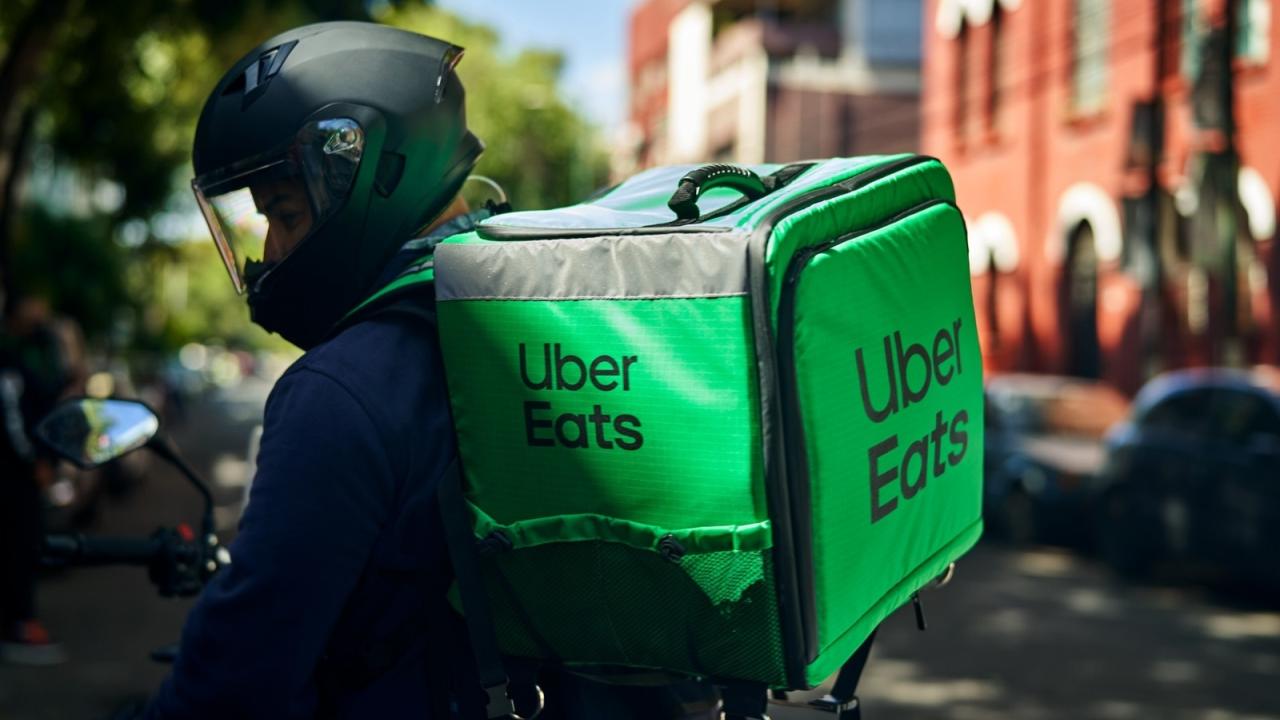
President Claudia Sheinbaum and the head of the Ministry of Labor and Social Welfare (STPS), Marath Bolaño , presented the initiative that will be sent to the Congress of the Union to regulate work in applications such as Uber, Didi and Rappi.
The reform of digital platforms promoted by the federal government will focus on the recognition of the employment relationship of delivery people and app drivers, and access to social security. The project prepared by the Ministry of Labor and Social Welfare (STPS) seeks to protect a workforce that until now has been classified as independent.
This Wednesday, President Claudia Sheinbaum and the head of the STPS, Marath Bolaños, presented the initiative that will be sent to the Congress of the Union to regulate work in applications such as Uber, Didi and Rappi.
The proposal aims to incorporate a new chapter in the Federal Labor Law (LFT) with specific rules for a model that goes beyond traditional labor schemes and guarantees rights such as profit sharing (PTU).
The reform has two dimensions: minimum wage and effective working time. In general terms, companies that own applications will be obliged to contribute to the social security of workers when the person generates an income equivalent to a minimum wage.
According to the proposal made by the agency, workers who generate earnings equal to or greater than the minimum wage will have all the rights established in the Federal Labor Law and full social security. The STPS estimates that this scheme will benefit more than 272,000 delivery people and app drivers.
On the other hand, subordination will be established during the effective working time, understood as the time that the delivery person spends from accepting an order until completing the delivery. The initiative presents this as a discontinuous subordination.
However, this does not mean that when income does not reach the minimum wage, workers will be unprotected during a work accident. They will be insured by the Mexican Social Security Institute (IMSS) during the effective time of work; that is, while the discontinuous subordination is active. This will benefit about 658,000 people, according to the STPS.
The project also sets out rules for the disconnection of workers, such as failure to comply with a request, and the obligation to register contracts with the Federal Centre for Conciliation and Labour Registration (CFCRL).
An interesting point of the proposal is that it contains an article that gives workers the power to choose when and for how long to connect and prohibits companies from limiting the connection to the application; this is the provision that seeks to guarantee labor flexibility in the model.
The reform promoted by the Executive Branch will be accompanied by innovations in insurance with the IMSS, such as registration with the Institute at the beginning of the month without payment, with retroactive adjustment and payment at the end of the month. A mandatory 180-day pilot program is also contemplated for all digital platforms.
The regulation of work on digital platforms was one of the commitments made by President Claudia Sheinbaum during her first day in office. Although the project has just been launched, the STPS began work in 2022, when the agency was headed by Luisa María Alcalde Luján.
Digital platforms continue to call for dialogue
One day before the morning conference in which the reform was presented, the Alliance In Mexico, an organization that brings together the main digital platforms, insisted on the call for social dialogue.
“We recognize the complexity of this discussion and seek to present proposals that share the vision of the President of the Republic, Claudia Sheinbaum Pardo, regarding improving the social conditions of delivery workers through access to social security, and at the same time, maintaining flexibility and independence, taking into account the context of each person, their needs and specific life decisions,” the organization said in a statement.
In recent weeks, the Alliance In Mexico has repeatedly reiterated its interest in a formal dialogue table. One of the proposals put forward by the digital platforms is the possibility of contributing to the social security of delivery workers, but without being considered employers.
And although the call for dialogue has been constant, the digital platforms had about 20 meetings with the agency prior to the presentation of the reform.
Companies are concerned about the recognition of the employment relationship. In 2022, Nicolás Sánchez, director of Public Policies at Uber Mexico, acknowledged that the business model is not designed to have subordinate workers.
“Unfortunately, this model is not designed to have employees. Let's imagine that three companies absorb 500,000 people, that is absolutely unviable. Imagine an industry that assumes the burden and social security cost for a person who connects for one hour a month,” he said in an interview with El Economista .









